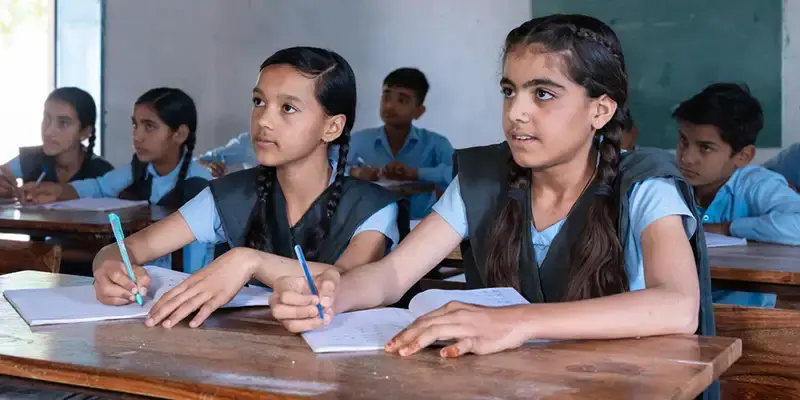Odisha tops RTE retention at 97% as four states achieve 91% overall, but digital and fee gaps persist
By | Education | 10-Sep-2025 14:47:58

News Story
Chhattisgarh, Odisha, Andhra Pradesh, and Uttarakhand recorded an impressive
91% retention rate among students enrolled under the Right to Education (RTE)
Act during the 2023-24 academic year, according to the latest report by Indus
Action, an education-focused NGO.
Topping the list, Odisha achieved a remarkable
97% retention rate, ensuring that 24,834 disadvantaged children remained on
track in their academic journey. The performance reflects the state’s effective
RTE implementation and commitment to providing sustained access to quality
education.
“These findings resonate with the vision of
the National Education Policy 2020, which emphasises not just access but
holistic development,” said Indus Action. The report highlighted that 87 per
cent of RTE students actively participate in school activities, while 98 per
cent maintain positive interactions with peers, demonstrating the program’s
role in fostering social integration across socio-economic lines.
Despite these encouraging figures, critical
challenges persist. The report points to gaps in fee support and digital
access, with 61 per cent of families still bearing school-related expenses and
57 per cent describing them as “quite difficult” to manage. Such financial
strain threatens the sustainability of RTE’s impact, underscoring the need for
comprehensive reimbursement mechanisms.
Digital inclusion remains another concern.
While 81% of RTE students form friendships across socio-economic divides,
access to technology-enhanced learning tools—a growing marker of quality education—remains
uneven, leaving many students at a disadvantage in the digital age.
“While we celebrate the 91% retention rate as
a testament to RTE’s potential, true educational equity demands that we address
the financial and digital barriers that families continue to face,” said Tarun
Cherukuri, founder and CEO of Indus Action.
The report also cautions that post-RTE educational outcomes are still poorly tracked, making it difficult to assess the long-term impact of these interventions. Yet, the overall findings provide a positive signal: RTE students are weathering learning losses and digital divides better than anticipated, pointing to the transformative potential of inclusive education policies—provided systemic gaps are addressed.